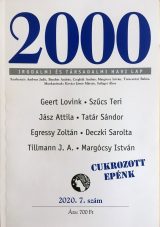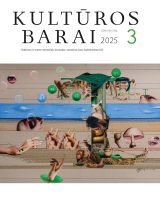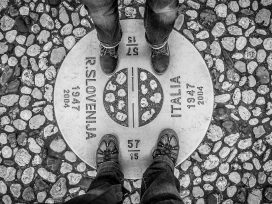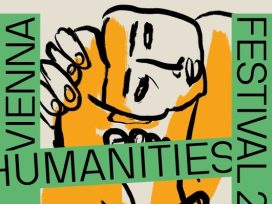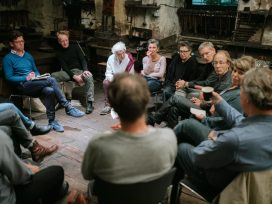The guarded approach of this year’s Berlin Biennale towards expressions of pro-Palestinian solidarity left artists and art public alike with the sense that what is currently permissible in Germany’s cultural sector is not enough.
Articles
Let our political imaginations soar
Blätter für deutsche und internationale Politik 10/2025
Gaza and the age of impunity; Islamism and leftwing anti-Zionism; dead-ends of Staatsräson; illiberal rap.

Russian art museums and galleries, navigating Putin’s censorship, either conform or risk closure. Dissenting cultural workers are sacked, artists arrested. Pro-war propaganda is both sardonically replacing exhibitions once celebrating Soviet Ukraine in Russia and eradicating Ukrainian culture in the occupied territories.
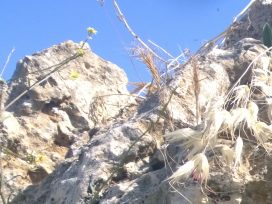
Becoming seeds
Affective resistance and the afterlives of uprisings
What happens when societies become desensitized to violence? Does humanity collapse under the weight of repeatedly inflicted cruelty, witnessed as routine, forcing endurance on women, the poor and others excluded from citizenship, as in Gaza? Or does resistance rest in the gestation of fragmented, suspended lives, the martyred dead and movements like ‘Woman, Life Freedom’?
Recommended topics
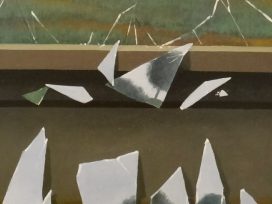
House keys recur in the stories of Crimean Tatars and Palestinians displaced from their respective homelands in the 1940s, and Ukrainian citizens fleeing Russian invasion since 2014. Ethnographic research and discourses on art and justice show how objects emblematic of home salvage the history of exiled peoples from oblivion.
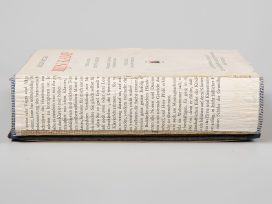
The elasticity of morals
100 Years of ‘Mein Kampf’
A century after publication, ‘Mein Kampf’ is instructive not just of the mass appeal of delusional xenophobia, but also of the circumstances under which morality can become a form of terror.
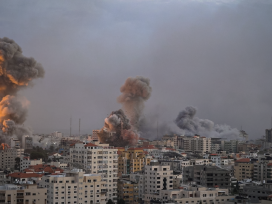
Under the Netanyahu government, Israel has aligned itself with an autocratic international whose goal is to transform sovereignty into state impunity. The war on Gaza inaugurates a global era in which consensus itself has lost legitimacy.

“Come Together” is founded on the principles of partnership and peer-to-peer learning among individuals within community media organizations situated in six different countries. Instead of generating entirely new knowledge, the initiative aims to unearth and leverage the existing wisdom residing within these organizations to foster innovative approaches.
Eurozine review
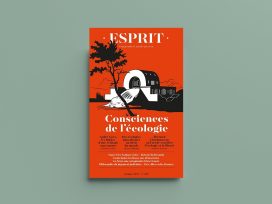
Consciences of ecology
Esprit October 2025
André Gorz’s anti-productivist socialism; Bernard Charbonneau’s ecological personalism; environmentalism’s anarchist roots; ero-politics.
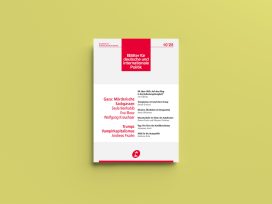
Let our political imaginations soar
Blätter für deutsche und internationale Politik 10/2025
Gaza and the age of impunity; Islamism and leftwing anti-Zionism; dead-ends of Staatsräson; illiberal rap.
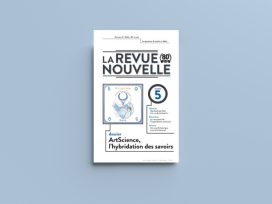
ArtScience
La Revue Nouvelle 5/2025
How bringing art into the hospital can rehumanize the patient-carer relationship; what the applied arts can bring to archaeology, and vice versa; and how the reunion of art and science can re-politicize the imagination.
Focal points
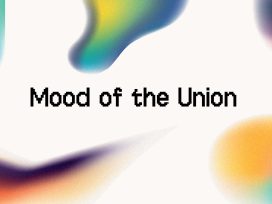
The European Parliament elections on 9 June are a referendum on EU policy since 2019. Will voters give Europe the green light for further progress, or pull the brakes? A new Eurozine series measures the political atmosphere in the EU and its neighbourhoods at this crucial moment.

Food and water systems under pressure: as the end of abundance becomes an everyday experience in Europe, we are thinking more closely about how our food reaches the table.

Post-revolutionary Ukrainian society displays a unique mix of hope, enthusiasm, social creativity, collective trauma of war, radicalism and disillusionment. With the Maidan becoming history, the focal point ‘Ukraine in European Dialogue’ explores the new challenges facing the young democracy, its place in Europe, and the lessons it might offer for the future of the European project.

Some observers, recalling the disasters of the 1920s and 30s, are suggesting that an anti-democratic counterrevolution on a global scale has begun. But is the writing really on the wall? Or does declinism prevent us from recognizing moments of democratic renewal?


